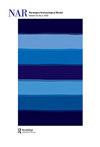The Blind Spots of the Colonial Legacies of Archaeological Theory and Practice
IF 1.1
3区 历史学
0 ARCHAEOLOGY
引用次数: 0
Abstract
The authors introduce their interesting and thoughtful piece with a personal anecdote that serves as an origin story to the argument within the paper itself and to the issues they have been wrestling with for some time. In 2018, they attended the 12 International Conference on Hunting and Gathering Societies (CHAGS), which was held in Penang, Malaysia. Located in a former British colony and in a part of the world that is often included in the Global South, the conference featured extensive engagements with the colonial legacies within hunting and gathering studies and political activism to initiate positive changes in future research. I am sure that many representatives of Indigenous groups and their research partners were able to attend this conference. Southeast Asia is home to a hugely diverse Indigenous cultural and social landscape, and this is not different for adjacent regions. At the same time, within the same region, many Indigenous groups suffer from oppression and their cultural and ethnic survival continues to be an ongoing struggle within different nation states. While I do not want to speculate further about the experiences of the authors on this occasion, it seems that the anecdote is reflective of a very common colonial/postcolonial situation. First, the authors mention that in Penang, they were in the minority as European researchers. This is an unusual experience for academics, who specialise in European subjects and can rarely engage with Indigenous communities from the Global South directly. Second, they experienced that their own field – hunter-gatherer studies – was seen and practiced in a very different way in a region that experienced European colonial occupation in the past and that was subjected to oppression by a foreign power. These processes were multidimensional and varied with historical circumstances; they were political, economic, social, and intellectual. In many countries in Southeast Asia, decolonisation after WWII was a violent process and in Malaysia it also involved a long and painful liberation conflict. These aspects are potentially known to Europe-based researchers, but it is a different story being exposed to the respective legacies directly and personally. I was not able to attend the CHAGS conference in 2018, but I can relate very well to the experiences of the two authors and how we are entangled in colonial legacies wherever we are and work. After finishing my PhD in the UK, I worked for several years in museums in Germany before moving to Australia in 2008. After focussing on European Palaeolithic archaeology and Palaeolithic art studies, I have now been working with Aboriginal people in Northwest Australia for many殖民地考古理论与实践遗产的盲点
作者用一段个人轶事介绍了他们有趣而深思的作品,这段轶事作为论文本身争论的起源故事,也是他们一段时间以来一直在努力解决的问题。2018年,他们参加了在马来西亚槟城举行的第12届国际狩猎与采集协会会议(CHAGS)。会议位于前英国殖民地,在世界上经常被包括在全球南方的一部分,会议的特点是广泛参与狩猎和采集研究中的殖民遗产和政治活动,以在未来的研究中发起积极的变化。我相信许多土著群体的代表和他们的研究伙伴能够出席这次会议。东南亚拥有极其多样化的土著文化和社会景观,这与邻近地区没有什么不同。与此同时,在同一地区,许多土著群体遭受压迫,他们的文化和种族生存仍然是不同民族国家内持续不断的斗争。虽然我不想进一步推测作者在这种情况下的经历,但这个轶事似乎反映了一种非常普遍的殖民/后殖民情况。首先,这组作者提到,在槟城,他们是欧洲研究人员中的少数。对于专门研究欧洲学科的学者来说,这是一次不同寻常的经历,他们很少能直接与来自全球南方的土著社区接触。其次,他们体验到,他们自己的领域——狩猎采集研究——在一个过去经历过欧洲殖民占领并受到外国势力压迫的地区,以一种非常不同的方式被看待和实践。这些过程是多方面的,随着历史环境的变化而变化;它们包括政治、经济、社会和知识。在东南亚许多国家,二战后的去殖民化是一个暴力的过程,马来西亚也经历了漫长而痛苦的解放斗争。欧洲的研究人员可能知道这些方面,但直接和个人接触各自的遗产则是另一回事。我没能参加2018年的CHAGS会议,但我能很好地理解这两位作者的经历,以及无论我们身在何处、工作在何处,我们是如何被殖民遗产纠缠的。在英国读完博士学位后,我在德国的博物馆工作了几年,2008年移居澳大利亚。在专注于欧洲旧石器时代考古学和旧石器时代艺术研究之后,我现在一直在澳大利亚西北部与土著人一起工作
本文章由计算机程序翻译,如有差异,请以英文原文为准。
求助全文
约1分钟内获得全文
求助全文
来源期刊

Norwegian Archaeological Review
ARCHAEOLOGY-
CiteScore
2.10
自引率
0.00%
发文量
13
期刊介绍:
Norwegian Archaeological Review published since 1968, aims to be an interface between archaeological research in the Nordic countries and global archaeological trends, a meeting ground for current discussion of theoretical and methodical problems on an international scientific level. The main focus is on the European area, but discussions based upon results from other parts of the world are also welcomed. The comments of specialists, along with the author"s reply, are given as an addendum to selected articles. The Journal is also receptive to uninvited opinions and comments on a wider scope of archaeological themes, e.g. articles in Norwegian Archaeological Review or other journals, monographies, conferences.
 求助内容:
求助内容: 应助结果提醒方式:
应助结果提醒方式:


